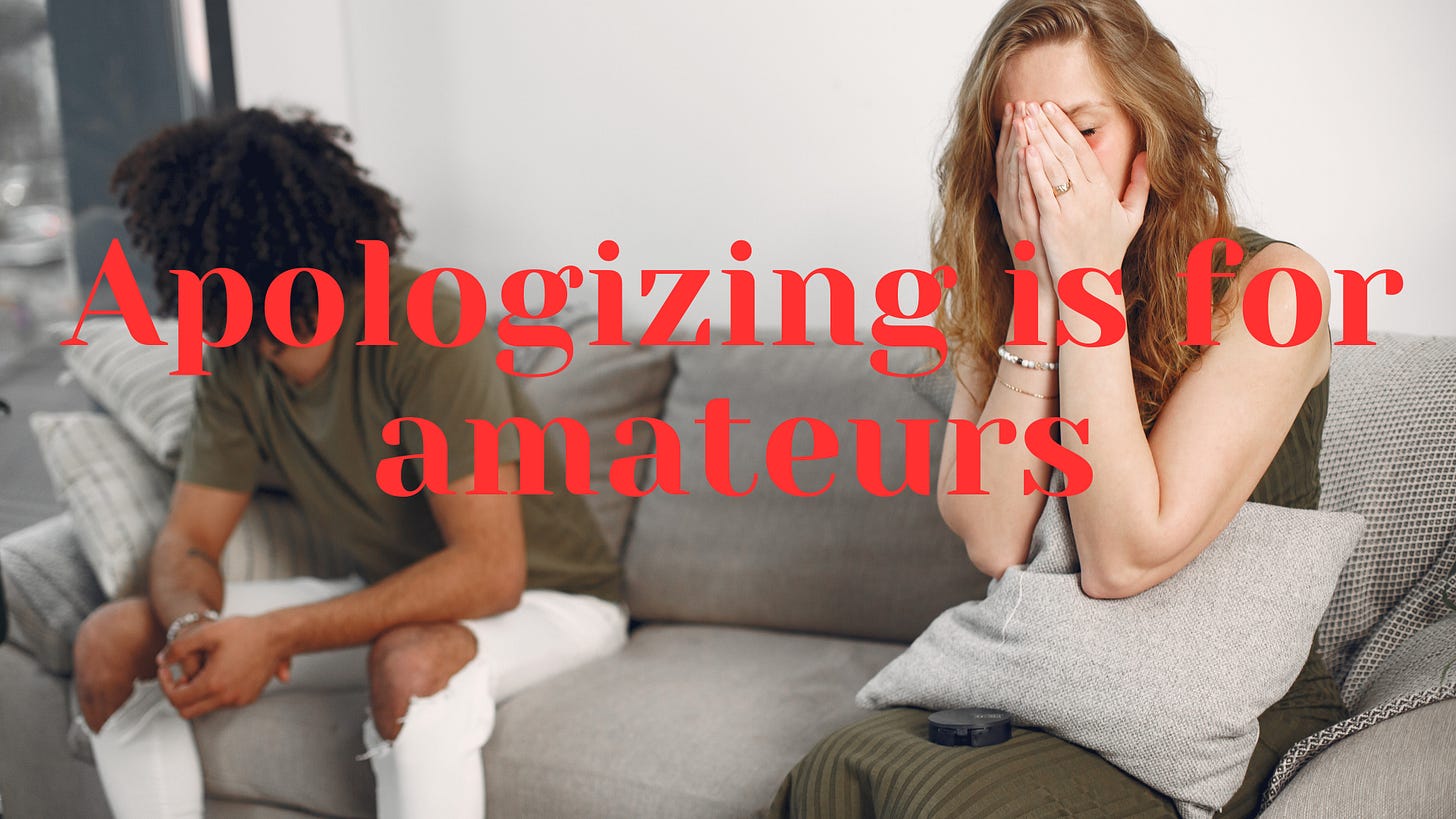Why Apologies Fall Flat
(And What You’re Actually Craving)
Let’s be honest: “I’m sorry” doesn’t always cut it.
You think you want an apology.
But what you really want is to feel understood. Seen.
Like the other person gets how their actions affected you—not just that they feel bad about it or are trying to smooth things over.
We’ve been conditioned to treat apologies as the gold standard of conflict repair.
But most apologies fall flat because they miss the actual thing we’re craving:
validation.
This builds on everything I wrote in Breaking Free, where I break down how unresolved patterns from your family system shape how you handle conflict and repair.
If you haven’t read it yet, it’s the foundation behind why these “sorrys” don’t actually land.
The Myth of the “Good” Apology
From the time we were little, we were told to say we’re sorry.
"Tell your sister you're sorry."
"Say sorry for hitting."
"Apologize to your friend."
We thought we were learning empathy—but really, we were learning compliance. We were taught to say the words to check the box, not how to actually feel what the other person felt.
And what do you get as a result? Adults who say sorry out of guilt, obligation, or to end the discomfort—but who don’t actually know how to reconnect on an emotional level.
That’s why a lot of apologies feel empty, even when the words are right. It’s not the apology that heals. It’s the understanding.
What You’re Actually Craving Is Validation
Think back to a time when someone hurt you and said, “I’m sorry.”
Did it feel better? Or did you still walk away feeling misunderstood?
What you were probably craving was something like:
"I can see how much that hurt you."
"It makes total sense that you felt blindsided."
"If I were in your shoes, I’d probably feel the same."
That’s validation. That’s connection. And that’s what people want most when they say they want an apology.
Because when someone validates your emotional experience, it tells your nervous system: You’re safe. You matter. You’re not alone in this.
This also connects to what I outlined in Reparenting Yourself, where I walk through how to give yourself the emotional care and validation you might never have received growing up.
Here is also a quick video breakdown on validation!
Real Repair Happens Through Connection, Not Compliance
The truth is, most apologies are more about ending the discomfort than truly understanding the impact.
Validation is different.
It’s not just saying, "I'm sorry I hurt you."
It's saying, "I get why that hurt you, and I care enough to stay with you in it."
That’s what helps people feel seen. That’s what creates true reconnection.
So if you want to teach your kids (or your partner, or even yourself) how to make things right, start here:
Don’t just teach them to say sorry. Teach them to recognize the impact.
Don’t rush to problem-solve. Start with validation.
Don’t seek forgiveness. Seek understanding first.
Try This Instead of Just Saying "Sorry"
If you want to repair a rupture in any relationship, here are a few phrases that go deeper than the standard apology:
"That must’ve felt really hurtful. I didn’t mean for it to land that way, but I can see how it did."
"You have every right to be upset. I get it now."
"I think I missed what you were really needing in that moment. Can we talk about it more?"
Final Thought: Go Beyond the Words
If you're craving a deeper sense of repair in your relationships, stop chasing perfect apologies.
Start looking for (and offering) emotional presence, empathy, and accountability.
That’s where the real love and connection is…
If this resonates, you’ll love my Breaking Free series—where I break down the invisible patterns passed down through families that keep us from connecting the way we were meant to.
What’s one apology you’ve been holding out for? Or one you wish you had handled differently? Drop it in the comments—let’s talk real repair.



